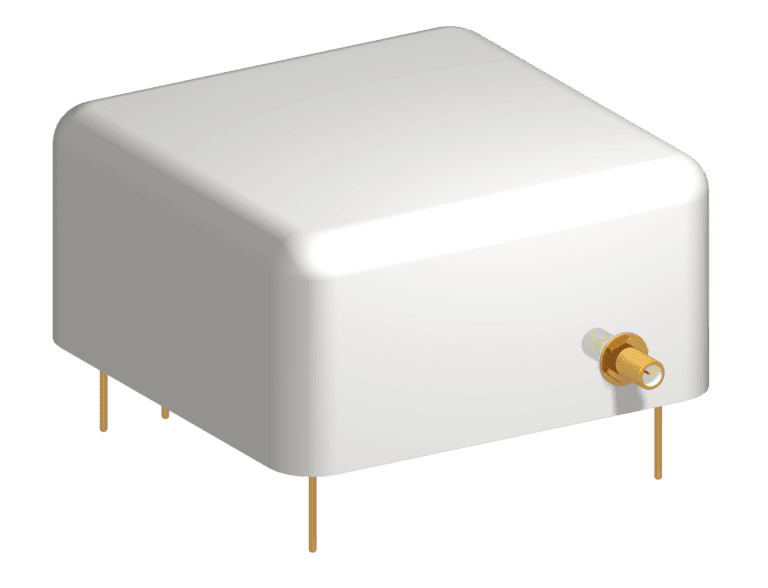In June of 2020, we released the first version of our GPS Disciplined Oscillator (GPSDO), the SGO10S. Now, we’re happy to say we’ve been working on a new GPSDO to help you build better products. A GPSDO, also called a GPS clock, is made up of a high-stability oscillator and a GPS receiver. These devices work by having the output of the oscillator controlled, or steered, through a tracking loop according to the GPS receiver or GNSS satellite signal.

The combination of a GPS receiver and the oscillator allows both short- and long-term stability for the device, making them one of the most accurate and trusted sources of timing. Because of this, GPS clocks are used in various network and satellite systems. Other applications they are good for include functioning as the basis for Coordinated Universal Time (UTC), synchronization to wireless base stations, PNT such as passive radar, critical infrastructure, and Cube and LEO Satellite Communications. After working to upgrade electrical performance and reduce the package size to meet market demands, Suntsu is proud to announce the next GPS Disciplined OCXO series, SGO12S, to our product line. Because we have improved phase noise performance and frequency stability over operating temperature without GPS lock, our upgraded GPSDO can be used for military communication equipment.
| SGO12S Product Specifications | |
|---|---|
| Package Size | 50mm x 50mm |
| Frequency | 10MHz |
| Frequency Stability vs. Operating Temp. (Without GPS Lock) | ±0.1ppb over -20~60°C ±5.0ppb over -20~70°C ±15.0ppb over -40~80°C |
| Frequency Accuracy | ±1ppt |
| Pulse Width | 1PPS Reference Input and Output |
| Holdover 24Hrs | ±1.5µs |
| Supply Voltage | 12.0 V |
| Other Features | Sinewave Output Ultra-Low Phase Noise |
Suntsu’s SGO12S includes an internal GNSS receiver with 1PPS output compatible with GPS/QZSS L1 C/A, GLONASS L10F, BeiDou B1 SBAS L1, WAAS, EGNOS, MSAS, GAGAN, and Galileo applications. This oscillator is also connected to an external antenna via a SMA connector which can maintain a 1PPS signal with a holdover of 1.5µs for a 24-hour period if GNSS signals fail. It’s important to note that a reliable OCXO is necessary to ensure that even when signals are lost, accurate timing is preserved.

